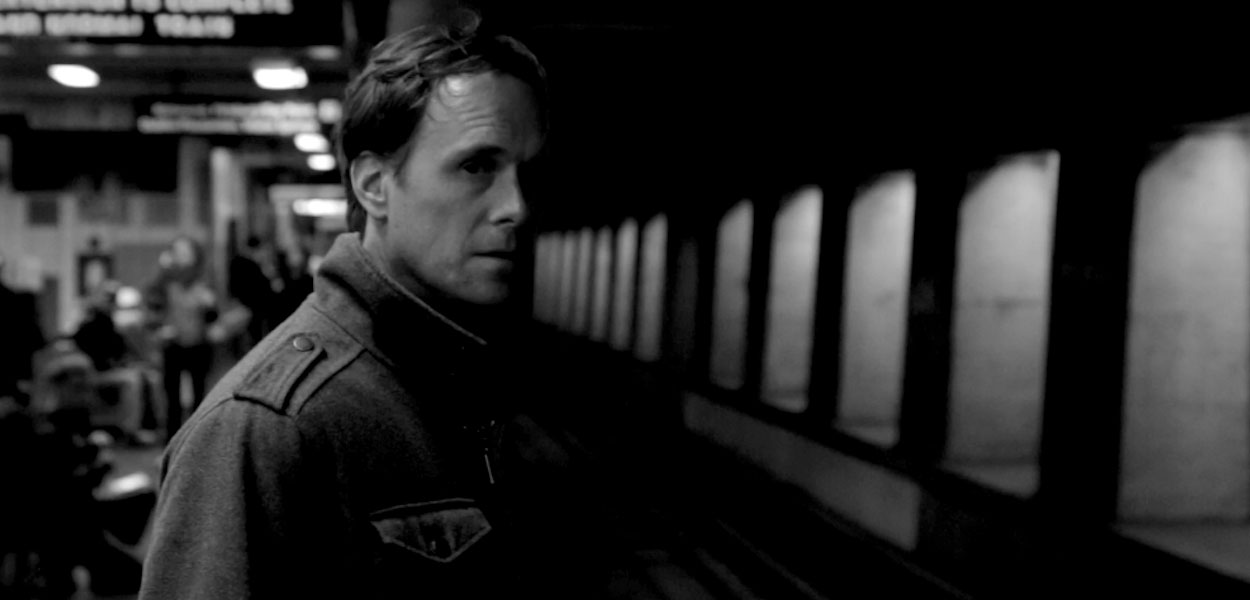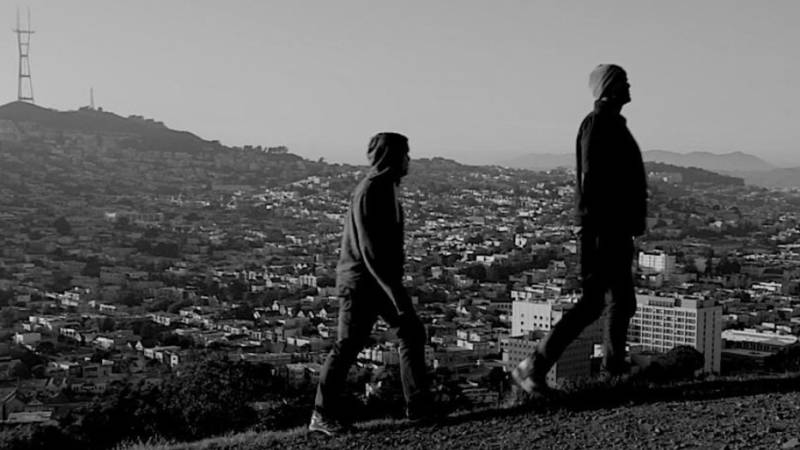Daniel Kremer’s endlessly intriguing independent feature, Overwhelm the Sky, probes and plays with the entwined myths that drove San Francisco’s romantic reputation for much of the 20th century: An open-handed, open-minded haven for creative, quasi-intellectual seekers and seers, and a gateway to the wild-open West for restless wanderers and self-sufficient loners.
Eddie Huntly, recently arrived from the other coast, inherits an acquaintance’s job hosting a late-night interview and call-in program. The show’s fringey guests, who appeal to an audience of insomniacs, and the characters that Eddie encounters on his walks in Golden Gate Park, are oddballs and outsiders of one variety or another.
Like a noir hero—or victim—of yore, Huntly lives in a world of handwritten letters, LPs, landlines and pay phones. And, appropriately, evocative black-and-white cinematography, courtesy of DP Aaron Hollander. I probably don’t have to tell you that Eddy is also haunted—by the death of his close friend (a tech entrepreneur, in a nod to the world we live in) in a mugging in our great park.

Kremer and Hollander were inspired by Charles Brockden Brown’s 1899 novel Edgar Huntly, or Memories of a Sleepwalker, and they have crafted, in collaboration with lead Alexander Hero and a cast of well-grounded, improvisation-oriented actors, a breezily enigmatic yarn that hangs out in the unincorporated territory between waking and dreaming, and reality and paranoia.
Overwhelm the Sky is inevitably descended from a host of San Francisco touchstones, which in this case adds to one’s viewing pleasure. The ill-fated protagonist of Frank Norris’ McTeague comes to mind, especially if you recall his deluded, desperate trip to the desert in Greed, Erich Von Stroheim’s timeless silent screen adaptation. The restless urban energy of the Beats, the nocturnal yearnings of local filmmaker Rob Nilsson’s tough-luck characters (he makes a too-short cameo in Overwhelm the Sky), the hard edge of American-style capitalism that underlies and sabotages relationships in Jon Jost’s films—it’s there if you want to see it.


